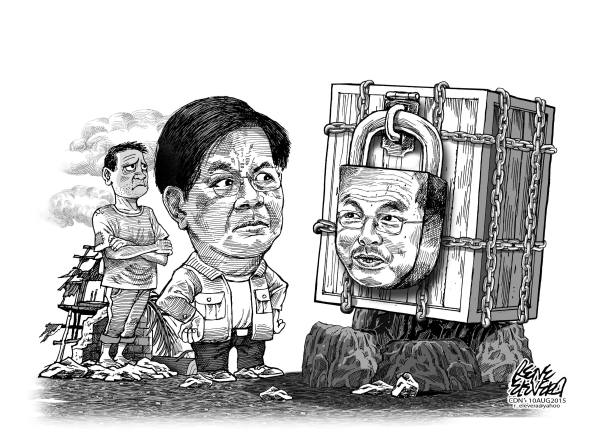
He may have resigned as rehabilitation czar for the Yolanda rebuilding program, but former senator Panfilo Lacson isn’t quitting on his efforts to remind the national government about its obligation to those who were devastated by the strongest typhoon in the country’s history.
Lacson, who’s also pressing charges against President Benigno Aquino III and Budget Secretary Florencio Abad due to what he claimed was the presence of pork barrel funds in next year’s budget, said he was taken aback when the Department of Budget and Management (DBM) supposedly failed to include an item for the Yolanda reconstruction effort in the 2015 budget.
He reminded Abad to put in even P1 just so the reconstruction budget can be augmented later. That there was no budget item for Yolanda victims showed just how easily the Aquino administration forgot about the victims even when only a few months have passed since the devastation occurred in November 2013.
Lacson’s reminder on the slow Yolanda reconstruction efforts gained currency with United Nations (UN) special rapporteur Chaloka Beyani, who said the national government had not done enough to provide homes for those who were rendered homeless by the supertyphoon.
In a TV interview, Lacson again ventilated his frustration over the government’s reluctance to give him sweeping powers to jump-start the rehabilitation process. He recalled that in other countries, those who were charged with overseeing the reconstruction even had power to bribe rebels into cooperating with the government in the rebuilding process.
But such is not the case in the Philippines where corruption and patronage politics had so ingrained itself into the fabric of local and national governance that practically next to nothing is done without the say so of political kingpins.
Nothing of course would be done if both the national and local governments continue to engage in either finger-pointing or dictating their ideas on how their towns and cities will be rebuilt.
Aside from landowners who raised land prices on seeing the government’s plans to rebuild better homes for those who lived in danger zones, there was also a need to process and ensure that the billions of pesos worth of funds will be spent for what they are intended for and not end up in someone else’s pockets.
We still have a full year left ahead for planning next year’s budget so we can only hope that the Yolanda rehabilitation program as well as other reconstruction programs intended for other areas devastated by typhoons will continue to be funded by the national government.